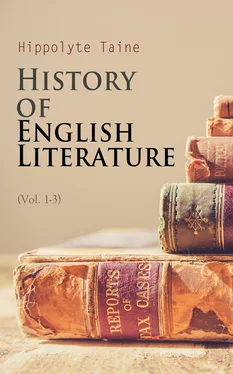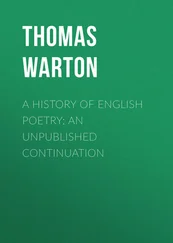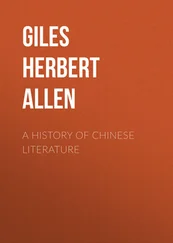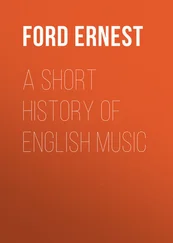Hippolyte Taine
History of English Literature
(Vol. 1-3)
e-artnow, 2021
Contact: info@e-artnow.org
EAN 4066338118875
Volume 1
Volume 2
Volume 3
Table of Contents Table of Contents Volume 1 Volume 2 Volume 3
INTRODUCTION
I. Historical documents serve only as a clue to reconstruct the visible individual
II. The outer man is only a clue to study the inner invisible man
III. The state and the actions of the inner and invisible man have their causes in certain general ways of thought and feeling
IV. Chief causes of thought and feeling. Their historical effects
V. The three primordial forces.—Race
VI. History is a mechanical and psychological problem. Within certain limits man can foretell
VII. Law of formation of a group. Examples and indications
VIII. General problem and future of history. Psychological method. Value of literature. Purpose in writing this book
BOOK I.—THE SOURCE CHAPTER FIRST - The Saxons
SECTION I.—The Coast of the North Sea
SECTION II.—The Northern Barbarians
SECTION III.—Saxon Ideas
SECTION IV.—Saxon Heroes
SECTION V.—Pagan Poems
SECTION VI.—Christian Poems
SECTION VII.—Primitive Saxon Authors
SECTION VIII.—Virility of the Saxon Race
CHAPTER SECOND - The Normans
SECTION I.—The Feudal Man
SECTION II.—Normans and Saxons Contrasted
SECTION III.—French Forms of Thought
SECTION IV.—The Normans in England
SECTION V.—The English Tongue—Early English Literary Impulses
SECTION VI.—Feudal Civilization
SECTION VII.—Persistence of Saxon Ideas
SECTION VIII.—The English Constitution
SECTION IX.—Piers Plowman and Wyclif
CHAPTER THIRD - The New Tongue
SECTION I.—The First Great Poet
SECTION II.—The Decline of the Middle Ages
SECTION III.—The Poetry of Chaucer
SECTION IV.—Characteristics of the Canterbury Tales
SECTION V.—The Art of Chaucer
SECTION VI.—Scholastic Philosophy
BOOK II.—THE RENAISSANCE
CHAPTER FIRST - The Pagan Renaissance
Part I.—Manners of the Time
SECTION I.—Ideas of the Middle Ages
SECTION II.—Growth of New Ideas
SECTION III.—Popular Festivals
SECTION IV.—Influence of Classic Literature
Part II.—Poetry
SECTION I.—Renaissance of Saxon Genius
SECTION II.—The Earl of Surrey
SECTION III.—Surrey's Style
SECTION IV.—Development of Artistic Ideas
SECTION V.—Wherein Lies the Strength of the Poetry of this Period
SECTION VI.—Edmund Spenser
SECTION VII.—Spenser in his Relation to the Renaissance
Part III.—Prose
SECTION I.—The Decay of Poetry
SECTION II.—The Intellectual Level of the Renaissance
SECTION III.—Robert Burton
SECTION IV.—Sir Thomas Browne
SECTION V.—Francis Bacon
CHAPTER SECOND - The Theatre
SECTION I.—The Public and the Stage
SECTION II.—Manners of the Sixteenth Century
SECTION III.—Some Aspects of the English Mind
SECTION IV.—The Poets of the Period
SECTION V.—Formation of the Drama
SECTION VI.—Furious Passions—Exaggerated Characters
SECTION VII.—Female Characters
CHAPTER THIRD - Ben Jonson
SECTION I.—The Man—His Life
SECTION II.—His Freedom and Precision of Style
SECTION III.—The Dramas Catiline and Sejanus
SECTION IV.—Comedies
SECTION V.—Limits of Jonson's Talent—His Smaller Poems—His Masques
SECTION VI.—General Idea of Shakespeare
CHAPTER FOURTH - Shakespeare
SECTION I.—Life and Character of Shakespeare
SECTION II.—Shakespeare's Style—Copiousness—Excesses
SECTION III.—Shakespeare's Language And Manners
SECTION IV.—Dramatis Personæ
SECTION V.—Men of Wit
SECTION VI.—Shakespeare's Women
SECTION VII.—Types of Villains
SECTION VIII.—Principal Characters
SECTION IX.—Characteristics of Shakespeare's Genius
INDEX
INTRODUCTION
I. Historical documents serve only as a clue to reconstruct the visible individual
Table of Contents
History, within a hundred years in Germany, and within sixty years in France, has undergone a transformation, owing to a study of literatures.
The discovery has been made that a literary work is not a mere play of the imagination, the isolated caprice of an excited brain, but a transcript of contemporary manners and customs and the sign of a particular state of intellect. The conclusion derived from this is that, through literary monuments, we can retrace the way in which men felt and thought many centuries ago. This method has been tried and found successful.
We have meditated over these ways of feeling and thinking and have accepted them as facts of prime significance. We have found that they were dependent on most important events, that they explain these, and that these explain them, and that henceforth it was necessary to give them their place in history, and one of the highest. This place has been assigned to them, and hence all is changed in history—the aim, the method, the instrumentalities, and the conceptions of laws and of causes. It is this change as now going on, and which must continue to go on, that is here attempted to be set forth.
On turning over the large stiff pages of a folio volume, or the yellow leaves of a manuscript, in short, a poem, a code of laws, a confession of faith, what is your first comment? You say to yourself that the work before you is not of its own creation. It is simply a mold like a fossil shell, an imprint similar to one of those forms embedded in a stone by an animal which once lived and perished. Beneath the shell was an animal and behind the document there was a man. Why do you study the shell unless to form some idea of the animal? In the same way do you study the document in order to comprehend the man; both shell and document are dead fragments and of value only as indications of the complete living being.
Читать дальше












